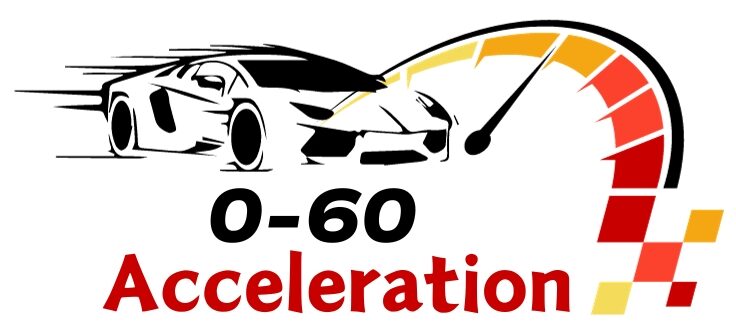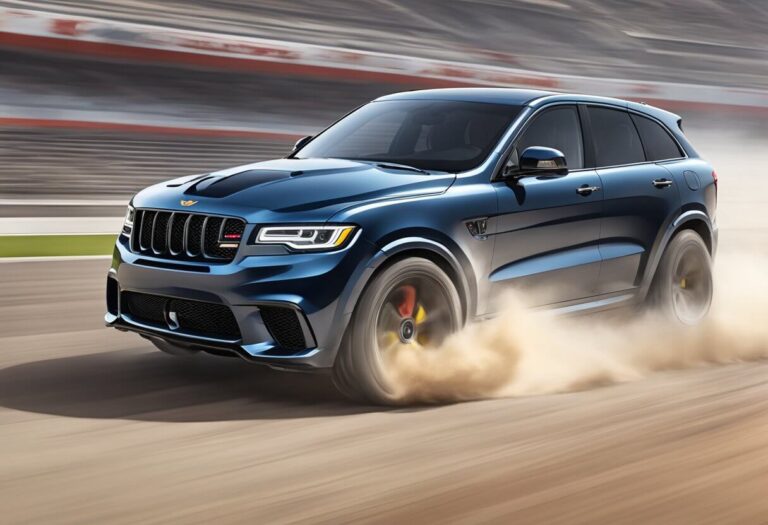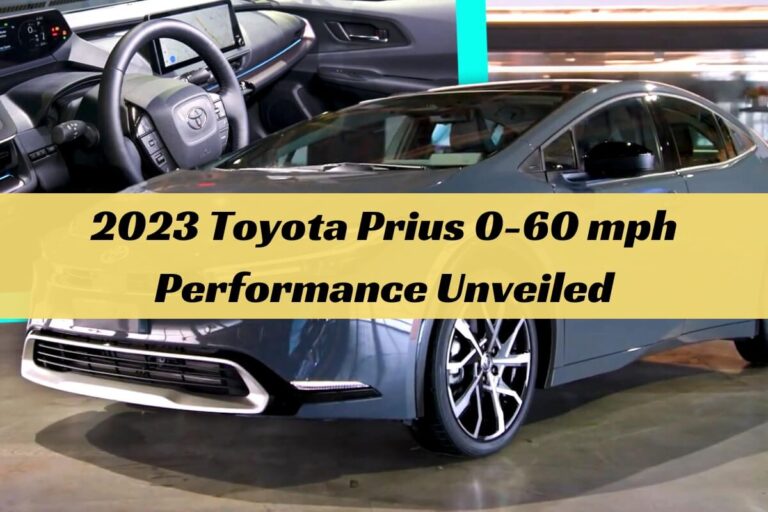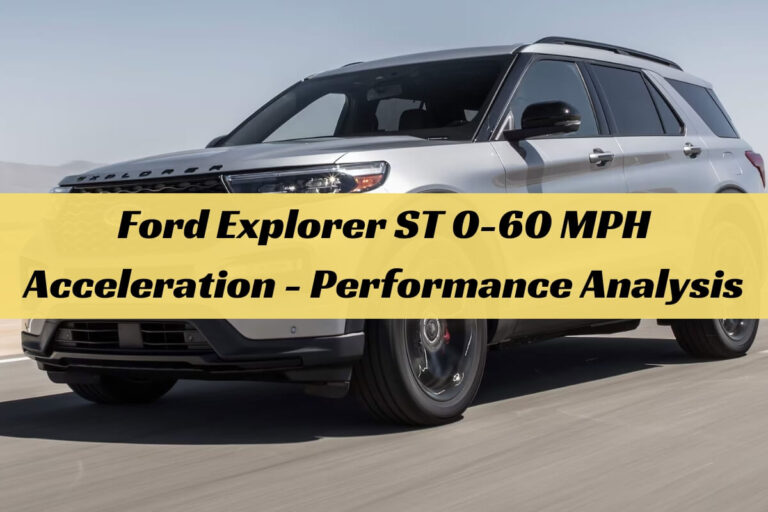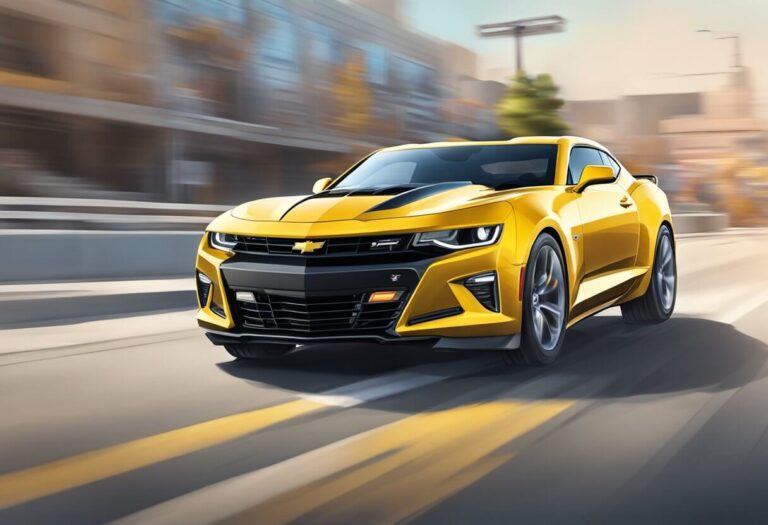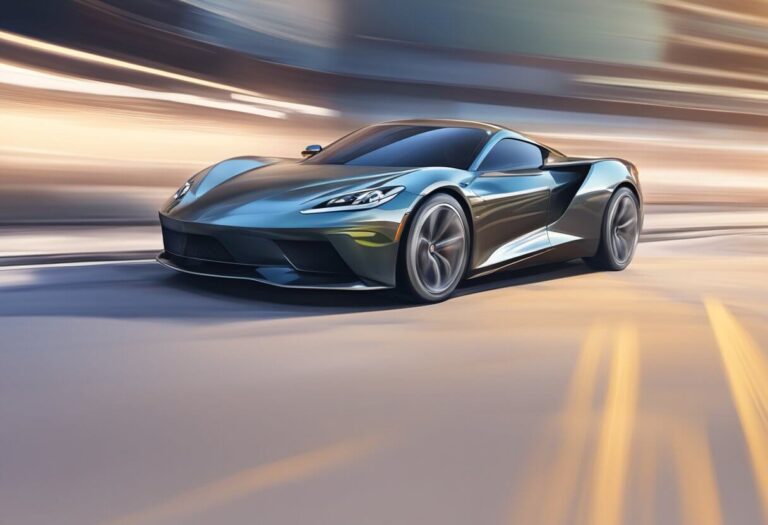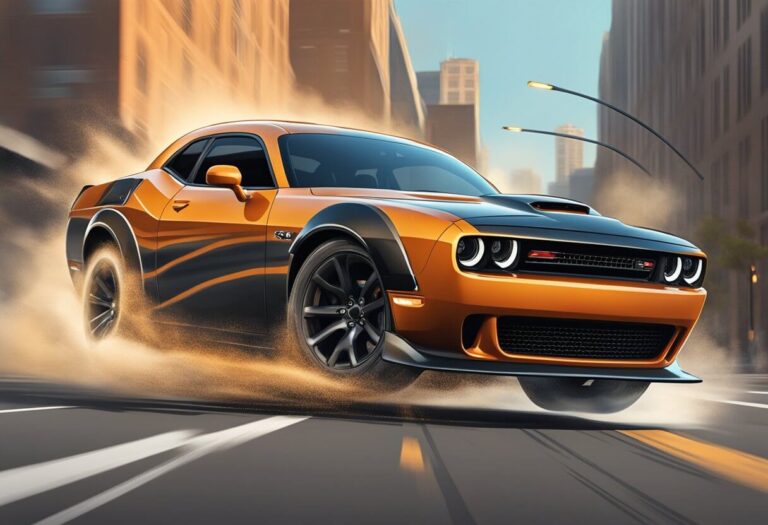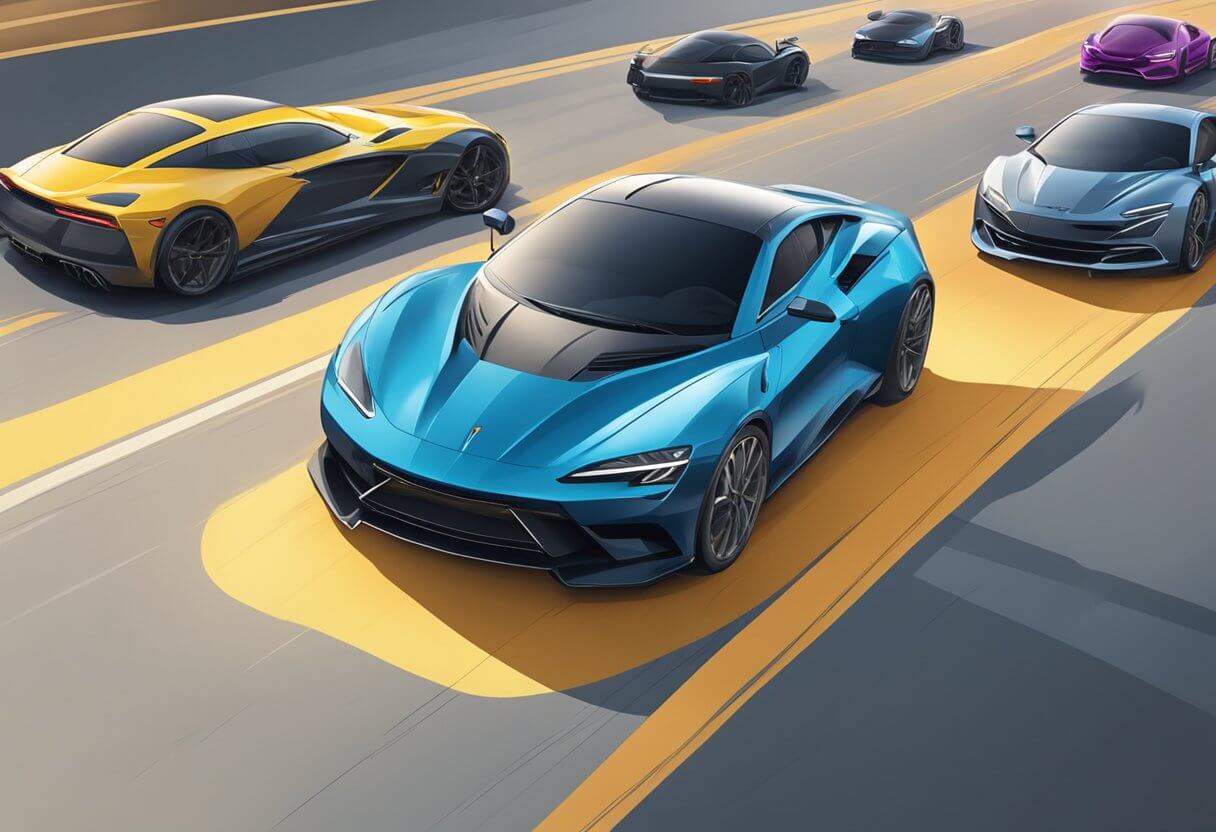
Does the roar of a high-performance engine get your heart racing? Are you obsessed with accelerating from a standstill to 60 mph (96 km/h) in the blink of an eye? If so, you’ve come to the right place. This comprehensive guide delves into the exhilarating world of the fastest 0-60 cars on the planet, where extreme engineering and cutting-edge technology converge to deliver mind-bending acceleration.
While top speeds and quarter-mile times hold significance, the 0-60 mph benchmark remains a universally recognized metric for evaluating a car’s sheer straight-line performance. It captures the raw thrill of launching from a standstill, pinning you back in your seat as the g-forces build. In this article, we’ll explore the current champions of 0-60 acceleration, unravel the science behind their blistering pace, and even touch upon the growing presence of electric vehicles (EVs) in this high-octane arena.
So buckle up, and let’s dive into the world of the fastest 0-60 cars, where every fraction of a second counts.
Understanding 0-60 mph Acceleration Times
Before we delve into the mind-blowing acceleration figures, let’s first grasp the concept of 0-60 mph (0-96 km/h) and why it’s such a coveted metric in the automotive world.
The 0-60 mph time measures how quickly a car can accelerate from a standstill to 60 miles per hour (96 km/h). It’s a simple yet effective way to quantify a vehicle’s initial acceleration, which is crucial for everything from merging onto highways to overtaking slower traffic.
Several factors influence a car’s 0-60 mph performance, including:
- Engine Power: More horsepower and torque generally translate to quicker acceleration, as the engine can propel the car forward with greater force.
- Weight: Lighter cars tend to have an advantage, as they require less force to overcome inertia and accelerate.
- Traction: The ability to transfer the engine’s power to the road surface is critical. Cars with advanced traction control systems and purpose-built tires can better harness available power.
- Aerodynamics: While less crucial at lower speeds, aerodynamic efficiency can still impact 0-60 times by reducing drag and enabling higher acceleration rates.
- Gearing: Shorter gear ratios allow engines to operate within their power-band more effectively, providing quicker acceleration off the line.
Automakers obsess over shaving fractions of a second from their cars’ 0-60 times, as these figures often serve as bragging rights and marketing tools in the fiercely competitive world of high-performance vehicles.
The Current Reigning Champions of 0-60 mph
Now that we understand the significance of 0-60 mph times, let’s take a look at the current production cars that reign supreme in this metric. Prepare to be amazed by the sheer acceleration capabilities of these engineering marvels.
1. Rimac Nevera – 1.74 seconds
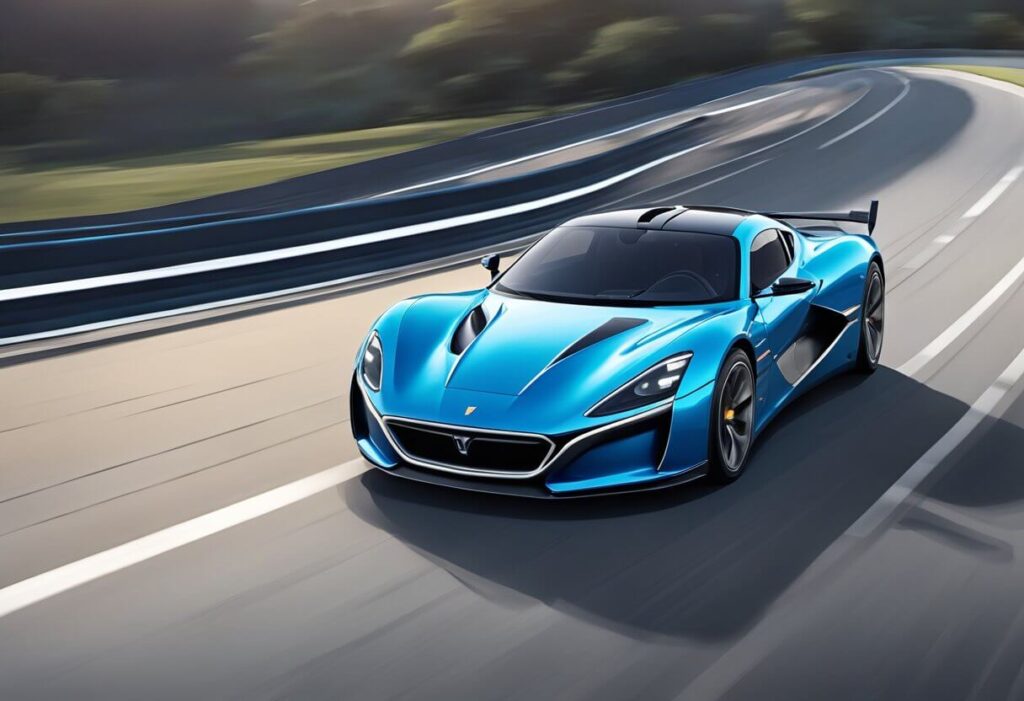
Hailing from Croatia, the Rimac Nevera is an all-electric hypercar that has redefined the boundaries of straight-line performance. With four electric motors producing a combined 1,914 horsepower and an astounding 2,360 Nm of torque, the Nevera can catapult from 0 to 60 mph in a mere 1.74 seconds, according to official figures.
This mind-boggling acceleration is made possible by the instantaneous torque delivery of its electric powertrain, coupled with advanced torque vectoring and traction control systems that ensure every ounce of power is effectively transferred to the road.
2. Pininfarina Battista – 1.79 seconds
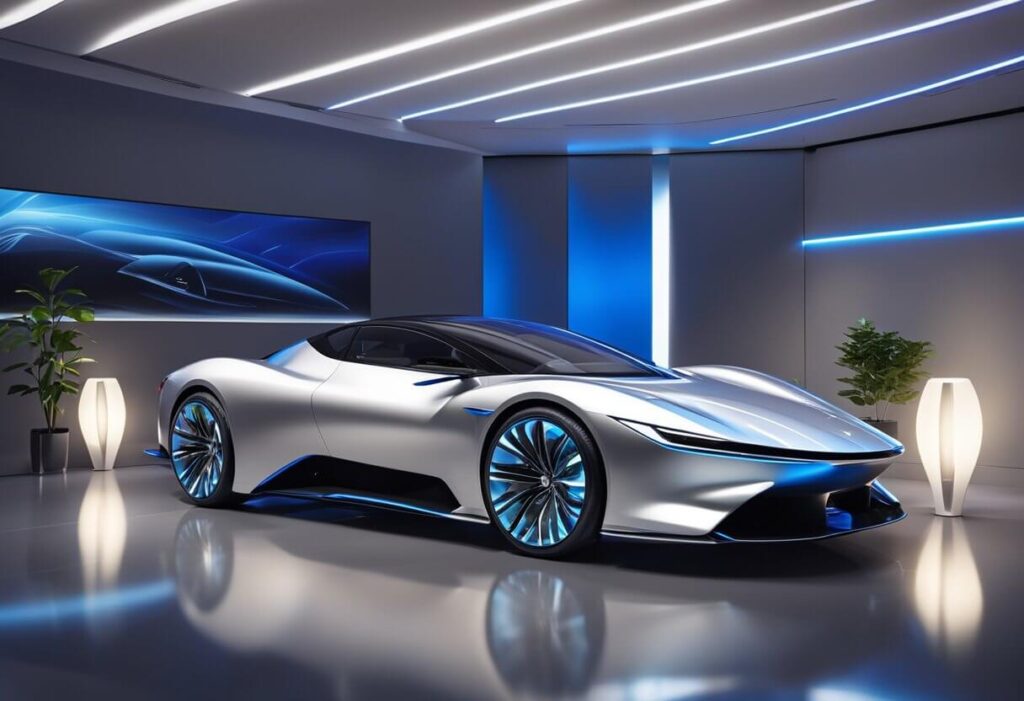
Not to be outdone, the Italian-designed Pininfarina Battista is another electric hypercar that redefines what’s possible in terms of acceleration. Powered by a quad-motor setup producing a combined 1,900 horsepower and 2,300 Nm of torque, the Battista can rocket from 0 to 60 mph in just 1.79 seconds.
Like the Rimac Nevera, the Battista’s near-instantaneous acceleration is a testament to the incredible potential of electric powertrains, making these cars true pioneers in the realm of rapid 0-60 performance.
3. Dodge Challenger SRT Demon 170 – 1.66 seconds
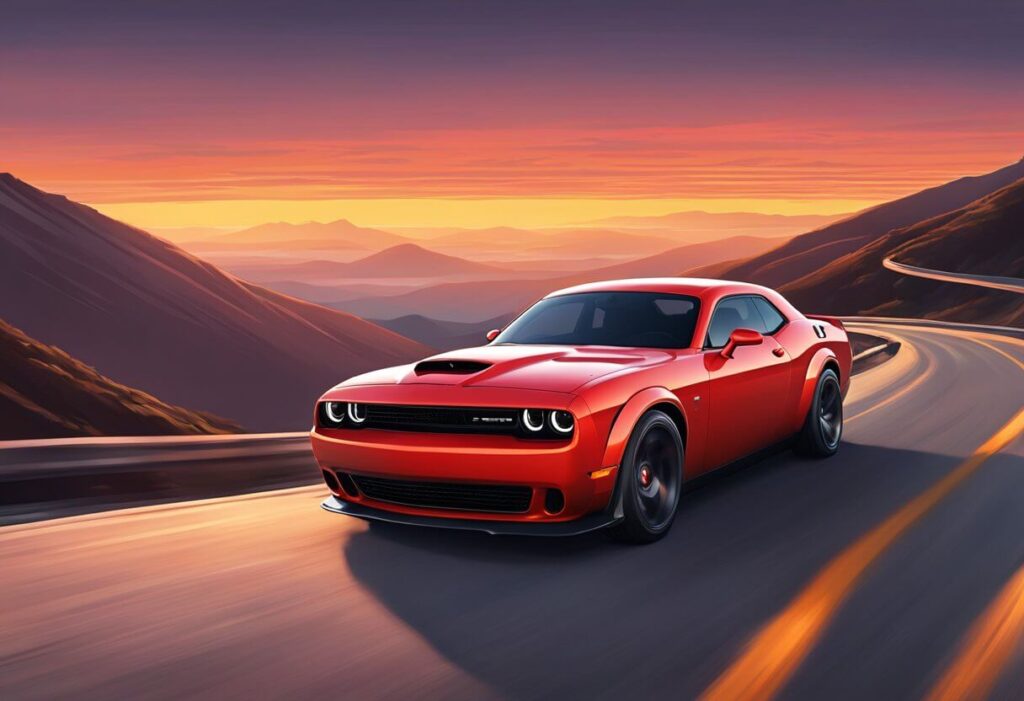
While electric hypercars dominate the top spots, the Dodge Challenger SRT Demon 170 proves that good old-fashioned American muscle still has a place in the world of quickest 0-60 cars. This purpose-built drag racing machine packs a 6.2-liter supercharged V8 engine that produces 1,025 horsepower and 1,281 Nm of torque.
With specialized drag radial tires, a TransBrake system, and the ability to run on race fuel, the Demon 170 can launch from 0 to 60 mph in a staggering 1.66 seconds, making it the quickest production car in the world when it comes to rapid 0-60 acceleration.
4. Lucid Air Sapphire – 1.89 seconds
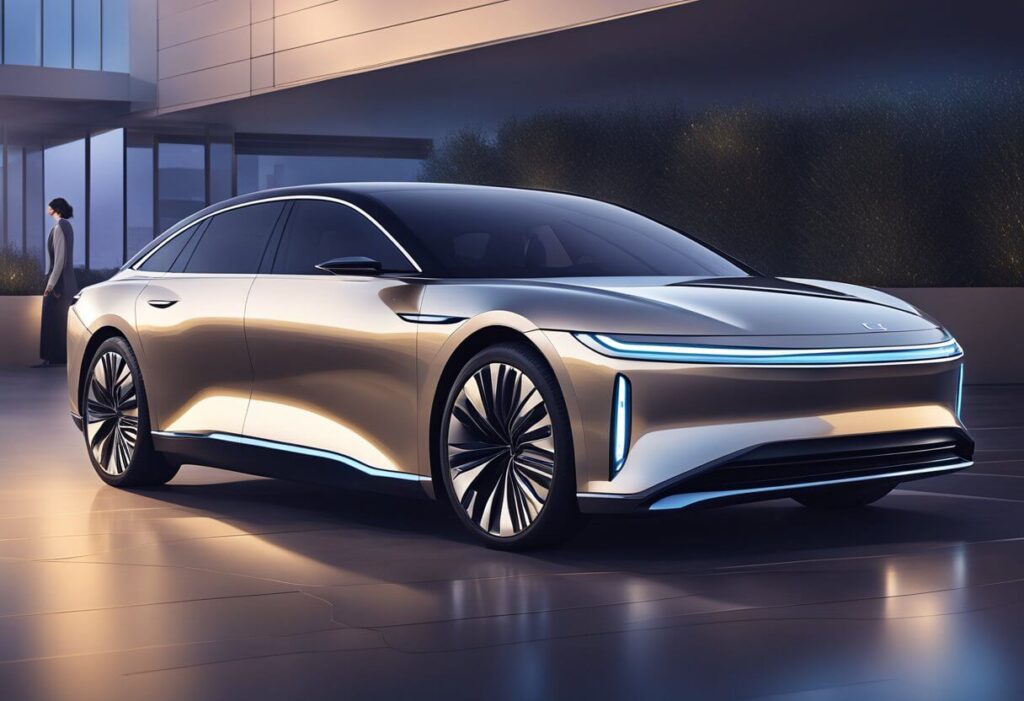
Rounding out the top four is another electric contender, the Lucid Air Sapphire. This high-performance variant of the Lucid Air boasts a tri-motor setup that generates a combined 1,234 horsepower, propelling the sleek sedan from 0 to 60 mph in just 1.89 seconds.
With its advanced lightweight construction and aerodynamic design, the Lucid Air Sapphire showcases how electric powertrains can deliver blistering acceleration not just in dedicated hypercars but also in more practical sedan offerings.
These are just a few examples of the current fastest 0-60 cars on the market. As technology continues to evolve and automakers push the boundaries of performance, we can expect to see even quicker acceleration times in the years to come.
Iconic 0-60 mph Monsters from Automotive History
While modern hypercars and EVs dominate the 0-60 mph leaderboards, it’s important to pay homage to the iconic vehicles that paved the way for today’s rapid acceleration heroes. These legendary cars captured the imagination of enthusiasts worldwide and forever etched their names in automotive history with their mind-blowing performance.
1. Lamborghini Miura (1966)
The Lamborghini Miura is widely regarded as the first true supercar, and its 0-60 mph time of around 6.3 seconds was simply unheard of in the mid-1960s. With its transversely-mounted V12 engine and sleek, sensual lines, the Miura set the benchmark for what a high-performance sports car should be.
2. Ferrari F40 (1987)
When it comes to iconic fast 0-60 cars, the Ferrari F40 is a name that immediately comes to mind. This no-frills, race-bred machine could sprint from 0 to 60 mph in just 3.8 seconds, thanks to its twin-turbocharged V8 engine and a relentless pursuit of weight reduction.
The F40’s raw, uncompromising nature and blistering acceleration made it an instant classic and a poster child for an entire generation of car enthusiasts.
3. McLaren F1 (1992)
Before the rise of modern hypercars, the McLaren F1 stood tall as the ultimate expression of automotive performance. This masterpiece from the legendary Formula 1 team could accelerate from 0 to 60 mph in a mere 3.2 seconds, courtesy of its 627-horsepower BMW V12 engine and an obsessive focus on weight optimization.
The F1’s acceleration figures were simply mind-blowing for its time, and it’s no wonder that it held the record for the world’s fastest production car for over a decade.
These iconic cars may not be the fastest 0-60 cars by today’s standards, but they paved the way for the current crop of performance machines and will forever be revered for their groundbreaking achievements in acceleration and engineering.
Electric Cars Disrupting the 0-60 Leaderboard
As we’ve already seen, electric vehicles (EVs) are making a significant impact in the realm of quickest 0-60 acceleration. With their ability to deliver instantaneous torque and advanced traction control systems, EVs are challenging the long-standing dominance of combustion-engined supercars when it comes to straight-line performance.
In addition to the Rimac Nevera, Pininfarina Battista, and Lucid Air Sapphire mentioned earlier, several other EVs have made their mark in the world of rapid 0-60 times.
1. Tesla Model S Plaid – 1.99 seconds
Tesla, the pioneering force behind mainstream electric vehicles, has also set its sights on performance with the Model S Plaid. This high-performance variant of Tesla’s flagship sedan can blast from 0 to 60 mph in just 1.99 seconds, thanks to its tri-motor setup that produces a combined 1,020 horsepower.
2. Aspark Owl – 1.72 seconds
Hailing from Japan, the Aspark Owl is an electric hypercar that currently holds the record for the fastest 0-60 acceleration of any production car. With its quad-motor setup generating a combined 1,980 horsepower, the Owl can launch from 0 to 60 mph in a mere 1.72 seconds, according to the manufacturer’s claims.
3. Drako GTE – 1.9 seconds
Another electric contender in the quickest 0-60 car category is the Drako GTE. This American-built hypercar boasts a quad-motor setup that produces a combined 1,200 horsepower, enabling it to rocket from 0 to 60 mph in just 1.9 seconds, according to the company’s estimates.
As battery technology continues to improve and automakers refine their electric powertrains, we can expect to see even more EVs breaking into the ranks of the fastest accelerating cars in the world.
How Automakers Achieve Insane 0-60 Times
Achieving mind-bending 0-60 mph acceleration times requires a combination of cutting-edge engineering, advanced materials, and relentless attention to detail. Automakers employ a variety of technologies and innovations to push the boundaries of performance and shave precious fractions of a second from their cars’ acceleration times.
1. Lightweight Construction
One of the most effective ways to improve acceleration is to reduce a car’s overall weight. Automakers achieve this through the extensive use of lightweight yet strong materials like carbon fiber, aluminum, and advanced composites. By shedding unnecessary pounds, the engine or electric motors can more effectively propel the car forward, resulting in quicker 0-60 times.
2. Advanced Traction Control Systems
Traction is essential for harnessing a car’s power and translating it into acceleration. Modern performance cars employ sophisticated traction control systems that use advanced sensors and algorithms to precisely modulate power delivery and prevent wheel spin, ensuring maximum grip and acceleration.
3. Launch Control Systems
For the ultimate in off-the-line acceleration, many high-performance cars feature launch control systems. These systems allow drivers to engage a pre-programmed launch sequence that optimizes parameters like engine output, transmission behavior, and traction control for a perfect, wheel-spin-free launch every time.
4. Aerodynamic Optimization
While aerodynamics play a less significant role at lower speeds, automakers still strive to optimize their cars’ aerodynamic profiles to reduce drag and enable higher acceleration rates. Advanced computational fluid dynamics (CFD) simulations and wind tunnel testing help refine a car’s shape, resulting in slippery designs that can slice through the air more efficiently.
5. Gearing and Transmission Advancements
Optimizing a car’s gearing and transmission is crucial for extracting maximum acceleration performance. Shorter gear ratios allow the engine or electric motors to operate within their optimal power bands more effectively, enabling quicker acceleration off the line. Additionally, advanced dual-clutch transmissions and seamless gear changes ensure that power delivery is never interrupted during the acceleration run.
While these technologies and innovations enable mind-boggling 0-60 mph times, it’s important to note that they often come at the cost of practicality, comfort, and even driving dynamics. Automakers must carefully balance the pursuit of ultimate acceleration with other factors to create well-rounded, daily-drivable performance cars.
Is Faster 0-60 Always Better?
With so much emphasis placed on achieving the fastest 0-60 times, it’s natural to wonder if quicker acceleration is always better. While blistering 0-60 mph performance is undoubtedly exhilarating and a point of pride for automakers, it’s important to consider the real-world practicality and usefulness of such extreme acceleration capabilities.
In many ways, the pursuit of the quickest 0-60 car has become an engineering exercise and a marketing tool, with automakers striving to outdo each other and claim bragging rights. However, for most drivers, the ability to accelerate from 0 to 60 mph in under 3 seconds is rarely a necessity or even a desirable trait in everyday driving scenarios.
Furthermore, other performance metrics, such as handling, braking, and top speed, can be equally or even more important for a well-rounded driving experience. A car that excels in straight-line acceleration but struggles in other areas may not be the most enjoyable or practical choice for enthusiastic drivers.
That being said, the quest for rapid 0-60 times has driven automakers to push the boundaries of technology and innovation, often resulting in advancements that trickle down to more mainstream vehicles. Additionally, for those who truly crave the thrill of raw acceleration, there’s no substitute for the visceral experience of being pinned back in your seat as a car rockets from a standstill to highway speeds in the blink of an eye.
Ultimately, the importance of 0-60 mph times comes down to personal preference and intended use. For some, it’s a numbers game and a source of bragging rights, while for others, it’s a means to experience the pure adrenaline rush of acceleration. As with any aspect of automotive performance, moderation and balance are key to enjoying the capabilities of these machines without compromising practicality or safety.
How to Experience Ballistic 0-60 Acceleration
If reading about the fastest 0-60 cars has piqued your interest and left you craving the experience of mind-bending acceleration, there are several ways to indulge your need for speed, even if you can’t afford to purchase one of these exotic machines.
1. Driving Experiences and Track Days
Many automakers and specialized companies offer driving experiences and track day events where you can get behind the wheel of high-performance vehicles and experience their acceleration firsthand. These events typically take place on closed circuits or designated areas, ensuring a safe and controlled environment for exploring a car’s performance potential.
2. Renting Exotic Cars
If a one-time experience isn’t enough, you can also consider renting exotic cars for a day or a weekend. Companies like Exotic Car Rental and Turo offer a wide range of high-performance vehicles, including some of the quickest 0-60 cars on the market, allowing you to experience their acceleration on your terms.
3. Affordable Performance Cars
While they may not match the outright acceleration of the hypercar elite, there are still plenty of affordable performance cars on the market that can deliver an exhilarating 0-60 mph experience. Cars like the Ford Mustang, Chevrolet Camaro, and Subaru WRX offer respectable acceleration times and the thrill of quick launches without breaking the bank.
4. Motorsports Events
For the ultimate acceleration experience, consider attending motorsports events like drag racing competitions or road racing events. Witnessing purpose-built drag cars and race cars accelerate from a standstill can be a truly awe-inspiring experience, and it might just inspire you to pursue your own passion for speed.
Regardless of the route you choose, experiencing the rapid acceleration of a high-performance vehicle firsthand is an unforgettable thrill that every automotive enthusiast should indulge in at least once. Just remember to always prioritize safety and obey all traffic laws when exploring a car’s performance on public roads.
Final Thoughts
In the world of high-performance automobiles, the quest for the fastest 0-60 car is a never-ending pursuit of engineering excellence and technological innovation. From the electric hypercars of Rimac and Pininfarina to the raw muscle of the Dodge Challenger SRT Demon 170, these machines represent the pinnacle of straight-line acceleration, capable of launching from a standstill to 60 mph in the blink of an eye.
Yet, as we’ve explored, the obsession with rapid 0-60 times is about more than just numbers and bragging rights. It’s a celebration of human ingenuity, a testament to our ability to push the boundaries of what’s possible and to create machines that defy our expectations of what a car can do.
